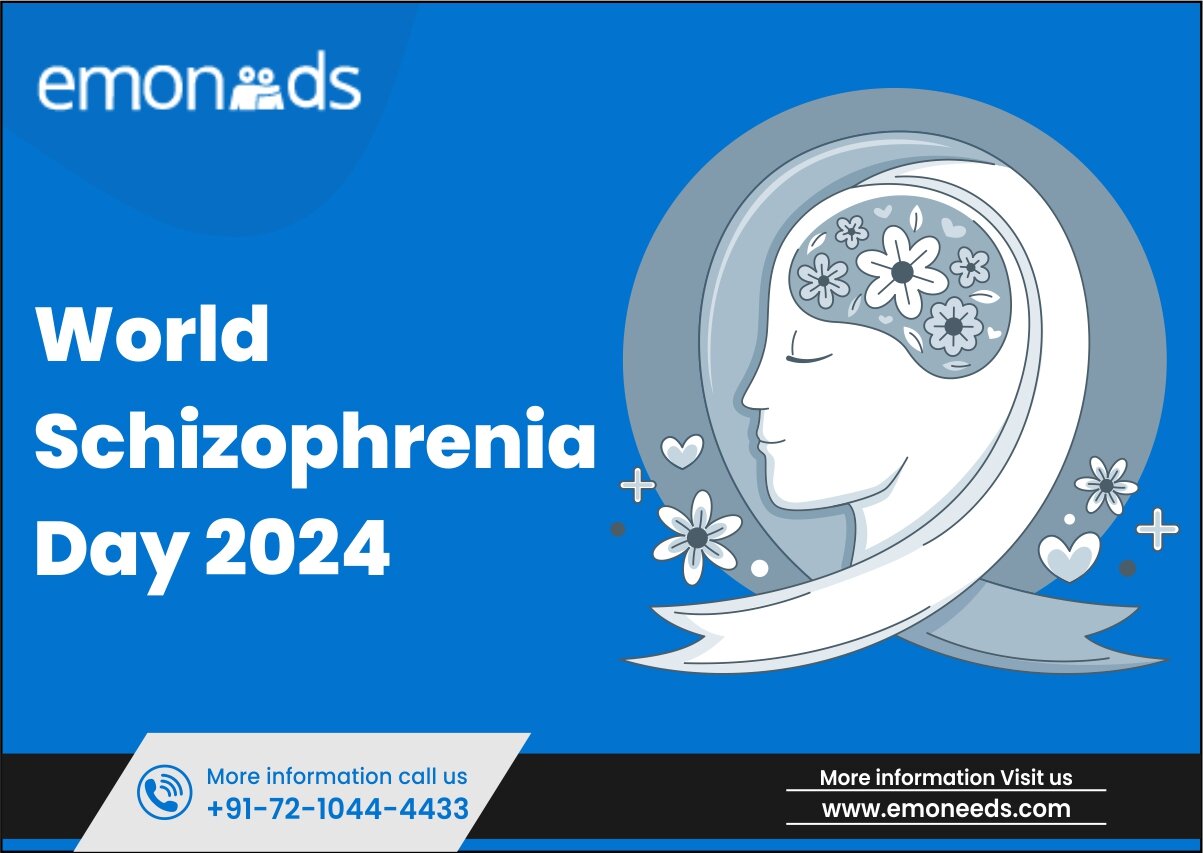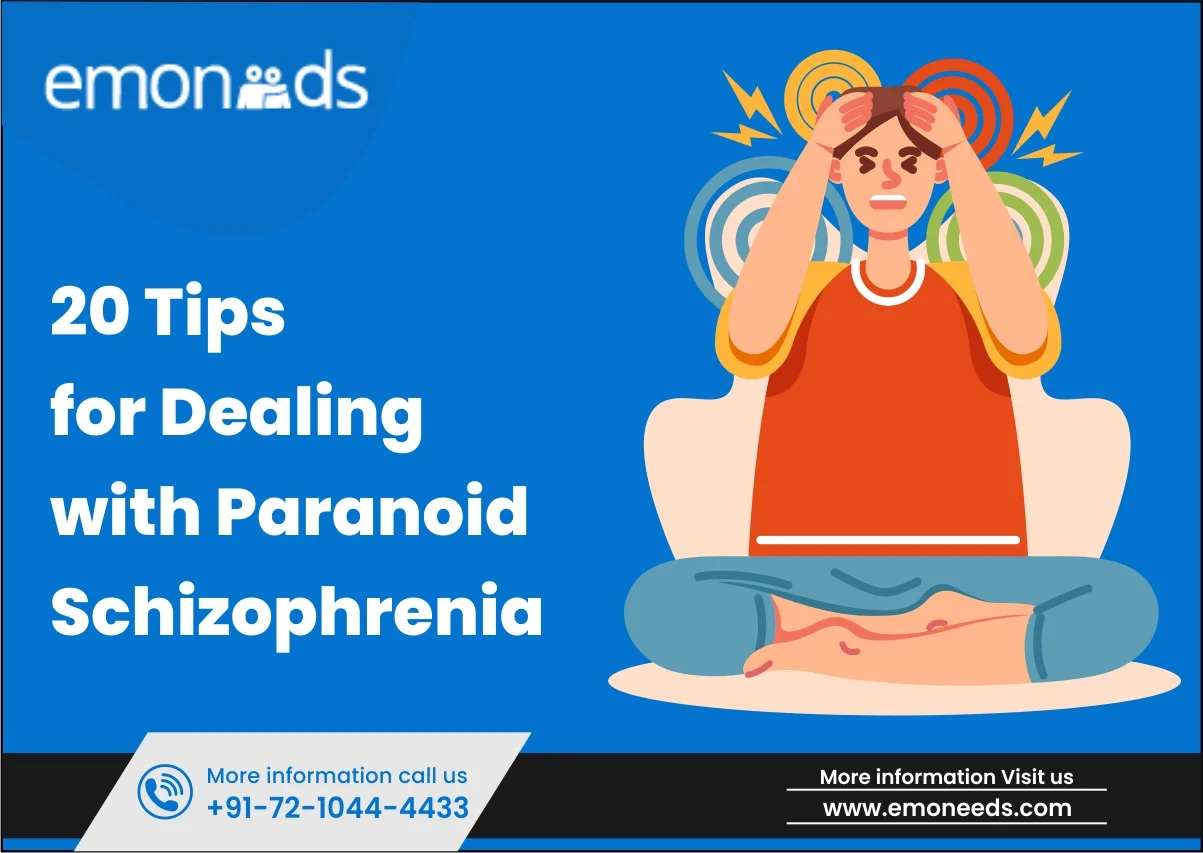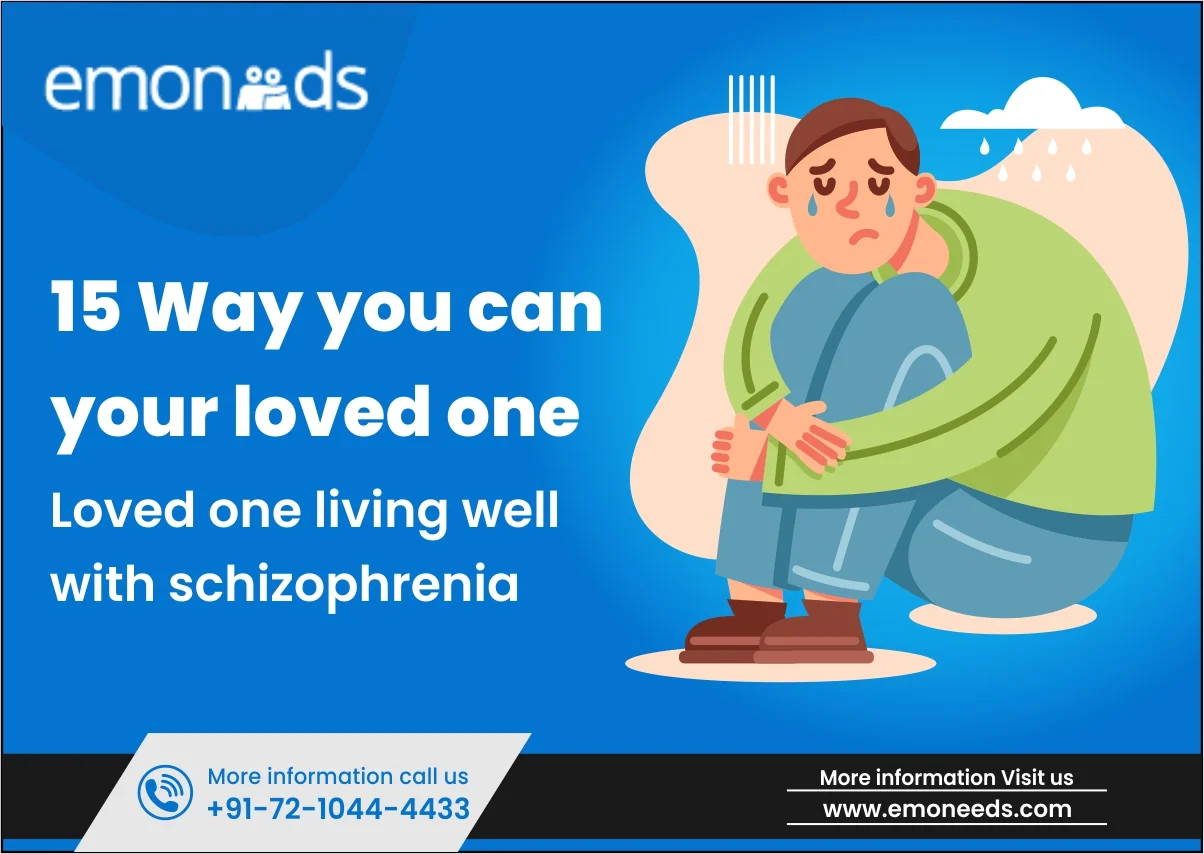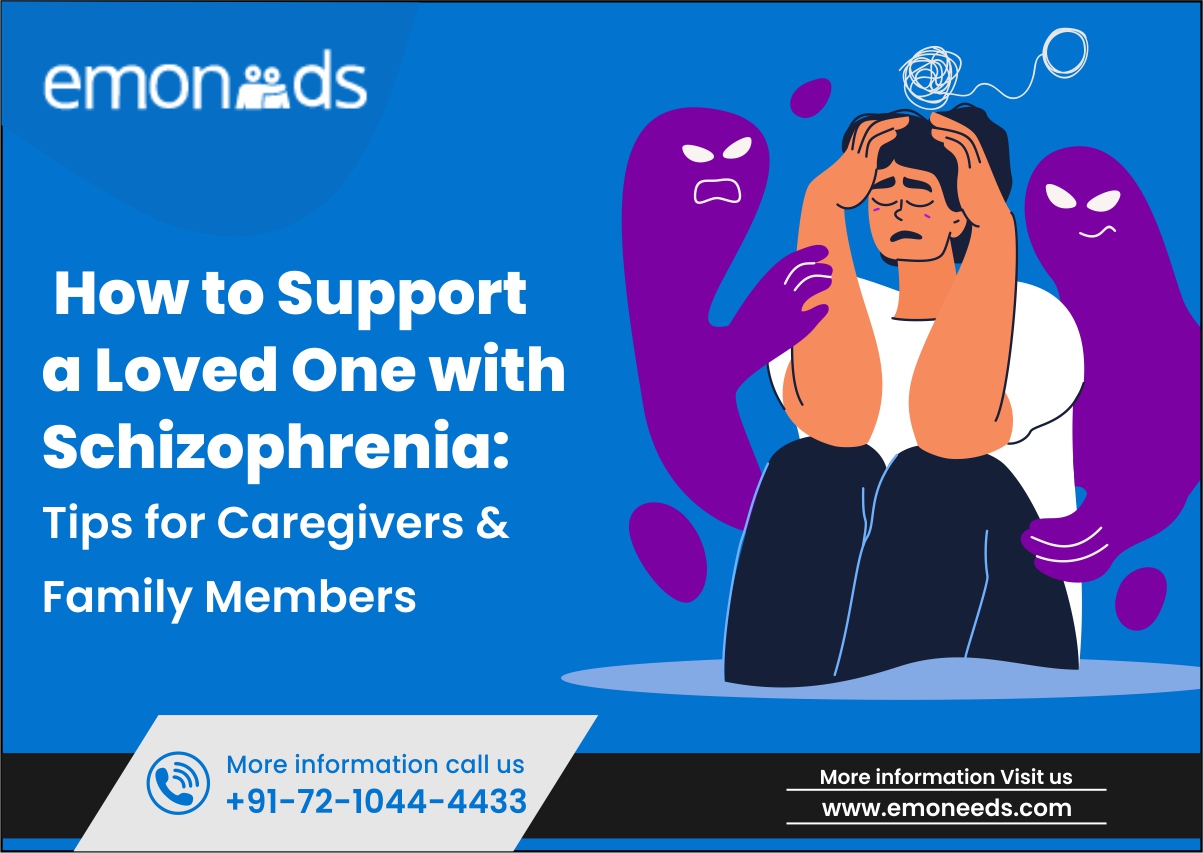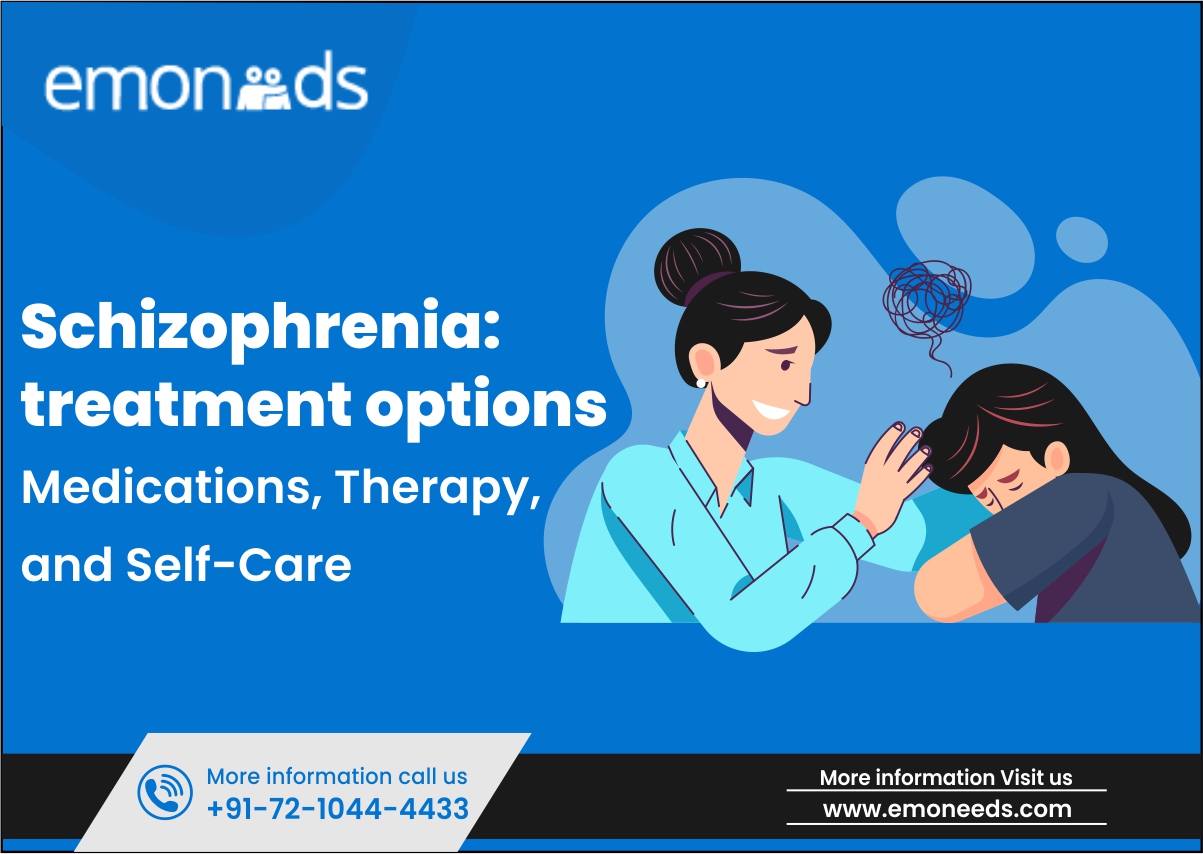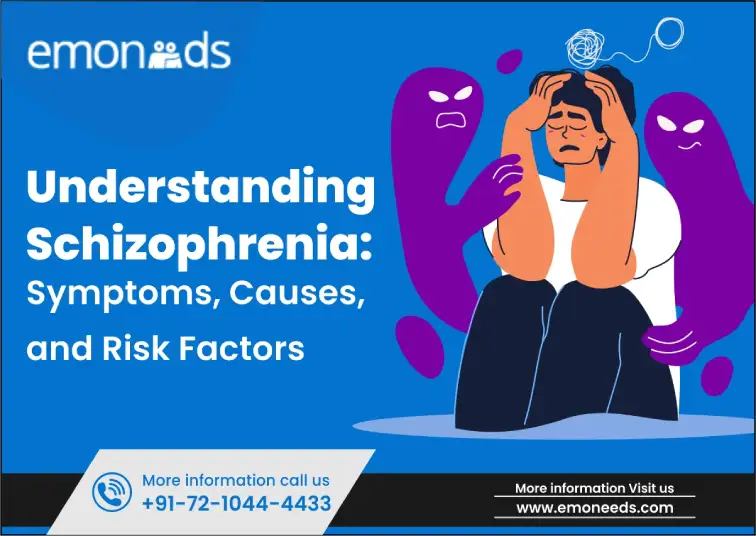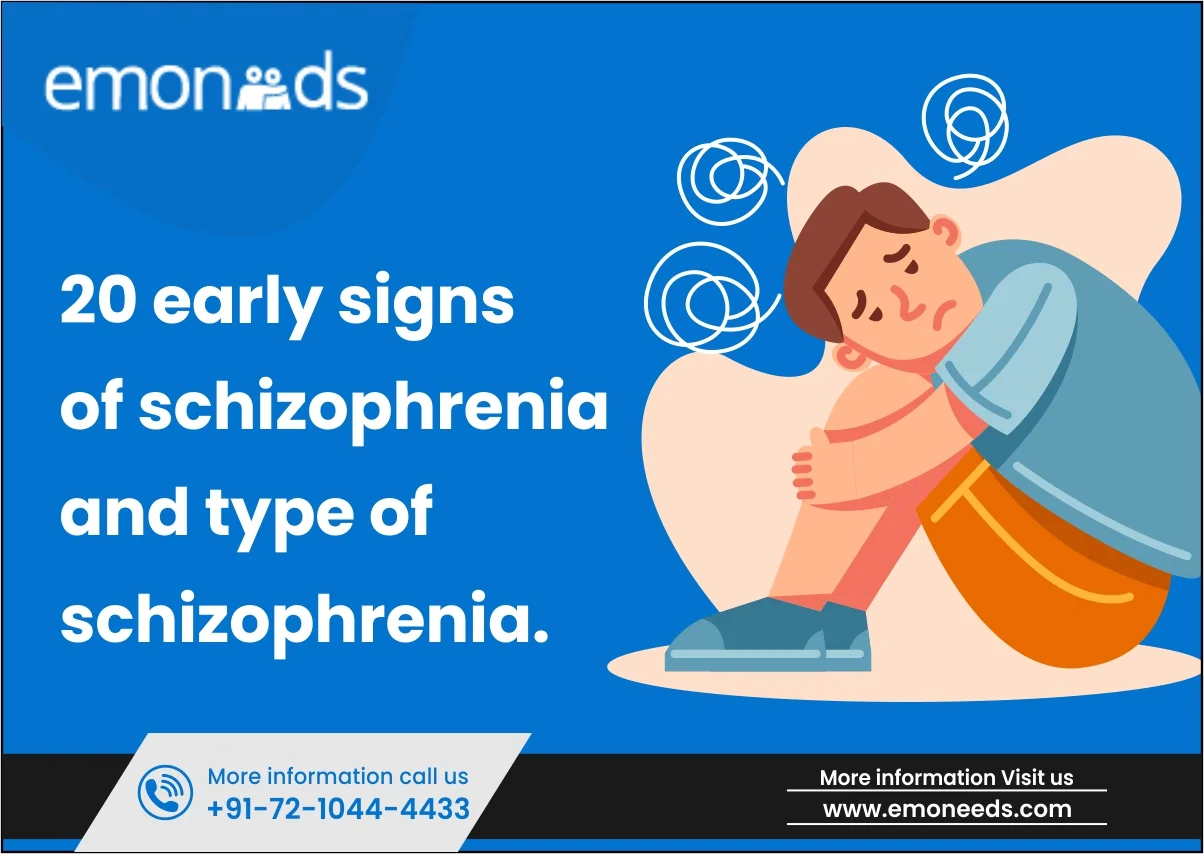
In the vast realm of mental health, schizophrenia stands as one of the most intricate and misunderstood conditions. Its impact can be profound, affecting not only individuals who experience it but also their families and loved ones. The early recognition of schizophrenia signs is of paramount importance for timely intervention and treatment, offering the best chance for improved outcomes and quality of life.
In this blog, we embark on an informative journey to educate readers about 20 early signs of schizophrenia, while delving into its different types. By fostering empathy and understanding, we aim to shed light on this often-stigmatized condition, providing support and knowledge to those in need.
Understanding Schizophrenia
At the heart of schizophrenia lies a complex interplay of genetic, environmental, and neurobiological factors that lead to alterations in an individual’s perception of reality, emotions, thoughts, and behavior. This chronic brain disorder affects approximately 1% of the global population, with its onset typically occurring during late adolescence or early adulthood. Unfortunately, myths and misconceptions have shrouded schizophrenia for years, contributing to the stigma surrounding mental health. It is vital to challenge these misperceptions, as a more empathetic and informed understanding can foster an environment of acceptance and support.
Early Signs of Schizophrenia: Recognizing the Red Flags
1. Social Withdrawal and Isolation
One of the most telling early signs of schizophrenia is social withdrawal and isolation. Individuals may become increasingly reclusive, preferring solitude over engaging with friends, family, or the community. This isolation can be misunderstood as mere introversion or shyness, but in the context of schizophrenia, it reflects a deeper emotional struggle.
While it might be tempting to attribute it to mere introversion or a passing phase, it’s essential to consider the possibility of an underlying mental health concern. Instead of making assumptions or judgmental remarks, offering patience and support can help them feel comfortable sharing their struggles.
2. Decline in Academic or Occupational Performance
A decline in academic or occupational performance can be a red flag for underlying mental health issues, including schizophrenia. Imagine witnessing a young adult who once excelled in their studies or career suddenly struggling to focus, maintain productivity, or accomplish tasks. This decline can be distressing for both the individual and their loved ones.
Rather than immediately admonishing or chastising them for their performance, expressing concern and offering support can be far more beneficial. Encouraging them to seek appropriate accommodations, such as extended time for exams or modified work assignments, can make a significant difference in their ability to cope with their academic or occupational challenges.
3. Unusual Beliefs and Ideas
The emergence of unusual beliefs and ideas can be an early warning sign of schizophrenia. A person suffering from schizophrenia may suddenly express bizarre or unfounded beliefs that seem entirely disconnected from reality. They may hold strong, irrational convictions that others find difficult to comprehend or explain. It can be a bewildering and concerning experience, leaving those around them unsure of how to respond.
Avoiding dismissive remarks or labeling their beliefs as irrational can go a long way in helping individuals feel heard and validated. Genuine curiosity and open-ended questions can help us understand their perspective and struggles better. In cases where these beliefs cause distress or disruption in their daily lives, offering gentle encouragement to seek professional help and therapy can be beneficial.
4. Hallucinations
Hallucinations are another characteristic feature of schizophrenia and are typically experienced as auditory, visual, or tactile sensations that are not based on reality. Auditory hallucinations, such as hearing voices that others cannot hear, are the most common type experienced by individuals with schizophrenia. Hallucinations are not merely figments of imagination or a form of self-indulgence but rather profound disturbances in the brain’s sensory processing.
Approaching someone experiencing hallucinations with compassion and empathy can be incredibly beneficial. Rather than dismissing their experiences or insisting they “snap out of it,” offering a listening ear and acknowledging their emotions can provide solace and comfort. It is crucial not to engage in arguments or attempts to prove that the hallucinations are not real, as this can further alienate the individual and worsen their distress.
5. Disorganized Speech and Thoughts
Disorganized speech and thoughts are hallmark symptoms of schizophrenia, often referred to as “word salad” or “thought disorder.” This symptom may manifest in their speech, making it challenging to follow their conversations or understand the underlying message.
In conversations, individuals with schizophrenia may exhibit incoherent or rambling speech, jumping from one topic to another without apparent logical connections. Their responses may be tangential, with unrelated or irrelevant information being included in their communication.
In such situations, exercising patience and giving them the time to express themselves is paramount. Avoiding interruptions and offering attentive listening can help the individual feel heard and respected. Simple techniques, such as writing down key points or breaking information into smaller, manageable chunks, can help individuals manage their communication difficulties.
6. Apathy and Lack of Emotional Expression
Apathy and a lack of emotional expression are common symptoms of schizophrenia. A person suffering from schizophrenia may become emotionally distant and seemingly indifferent to the world around them. This emotional numbing can be challenging for friends and family, leaving us unsure of how to connect with them.
However, it is essential to recognize that individuals experiencing affective flattening may still experience emotions internally but find it challenging to express them outwardly. Their emotional withdrawal is not a reflection of their feelings for others or a lack of caring, but rather a manifestation of their condition.
In such situations, being present for them without expecting a specific emotional response can be incredibly meaningful. Demonstrating unconditional love and acceptance can create a safe and non-judgmental space where they can feel comfortable expressing themselves in their own way and time.
7. Sleep Disturbances
Sleep disturbances, such as insomnia or unusual sleep patterns, can be indicative of underlying mental health concerns, including schizophrenia. These disruptions can exacerbate existing symptoms and hinder their ability to cope with daily challenges.
When someone experiences sleep disturbances, it’s essential to inquire about their sleep patterns with empathy and concern. Promoting good sleep hygiene practices, such as maintaining a regular sleep schedule, creating a calming bedtime routine, and minimizing stimulants before bedtime, can help improve sleep quality.
8. Heightened Anxiety or Paranoia
Heightened anxiety or unfounded paranoia can be early signs of emerging schizophrenia. These distressing emotions can lead to increased tension and fear. Individuals may feel constantly on edge, fearing threats that aren’t real or imagining harmful intentions from others.
Avoiding arguments or attempting to “talk them out” of their fears is essential, as this can exacerbate their distress. Instead, offering a supportive and non-threatening environment can help individuals cope with their overwhelming emotions.
9. Lack of Personal Hygiene
Schizophrenia can impact an individual’s ability to care for themselves, leading to neglect of personal hygiene. During these times, it’s crucial to recognize that their struggle with hygiene is a symptom of their condition and not a reflection of their character. Offering empathy and patience instead of judgment or criticism can prevent feelings of shame or guilt.
Suggesting simple self-care routines and assisting when necessary can be empowering. Gentle encouragement can help individuals regain a sense of control over their well-being.
10. Deterioration of Personal Appearance
Schizophrenia may cause individuals to lose interest in their appearance and neglect their grooming. They may stop caring about how they dress or present themselves to others. However, it is essential to recognize that their change in appearance is not due to laziness or indifference but is a manifestation of their condition.
Avoiding negative comments or attempts to force them to change can be counterproductive. Rather than focusing on their external appearance, expressing care for their well-being can be more meaningful. A mental health professional can explore the underlying reasons behind their change in appearance and help them develop a self-care routine that suits their needs.
11. Changes in Eating Habits
Altered eating patterns or significant weight changes may signify early signs of schizophrenia. In these situations, understanding is critical. Avoiding comments about their weight or appearance can prevent feelings of shame or body image issues.
Creating an environment where they feel comfortable discussing their eating habits can provide an opportunity for open communication. A professional can assess their eating habits and create a tailored treatment plan that addresses their specific needs.
12. Inability to Concentrate or Focus
Difficulties in maintaining attention and focus are common early signs of schizophrenia. Individuals may find it challenging to concentrate on tasks or conversations, leading to decreased productivity and frustration.
Techniques such as breaking tasks into smaller, manageable chunks or creating a structured study or work environment can be helpful. Suggesting breaks during tasks, minimizing distractions in the environment, and establishing a structured routine can help improve their ability to focus.
13. Unexplained Irritability or Anger
Unprovoked irritability and anger may emerge as potential signs of schizophrenia. Individuals may become agitated or respond angrily without an apparent cause, leaving friends and family perplexed and unsure of how to address their emotional outbursts.
In such situations, avoiding confrontations or attempts to “calm them down” can be more helpful than engaging in arguments. Offering them space and time to cool off can be beneficial. Once they are in a more receptive state, discussing their feelings and emotions in a non-judgmental manner can create a supportive environment for open communication.
14. Loss of Motivation
Individuals with early signs of schizophrenia may experience a lack of motivation and enthusiasm for activities they once enjoyed. This diminished drive can lead to a decline in overall participation and engagement. During these times, recognizing small achievements and celebrating their efforts can motivate them to pursue their interests.
Avoiding judgmental remarks about their lack of motivation can be empowering. Instead, expressing understanding and a willingness to help them navigate their emotions can make a significant difference.
15. Impaired Motor Skills
Schizophrenia can affect motor skills and coordination, leading to challenges in performing everyday tasks. Individuals may experience difficulties with balance, fine motor movements, or hand-eye coordination.
Offering assistance when needed and engaging in activities that promote physical coordination, such as exercise or yoga, can help them feel more confident in their abilities. Suggesting mobility aids or adaptive devices can help them navigate their physical challenges more effectively.
16. Heightened Sensitivity to Stimuli
Individuals with schizophrenia may become unusually sensitive to environmental stimuli, such as sounds or lights. Ordinary environmental inputs may become overwhelming and distressing for them. In such situations, modifying the environment to reduce noise levels, using soft lighting, or providing noise-canceling headphones can help alleviate their distress. Empathy and understanding are crucial during overwhelming situations. Demonstrating patience and providing reassurance can be comforting for individuals experiencing heightened sensitivity.
17. Unresponsiveness or Affective Flattening
Affective flattening refers to a reduction in emotional expression and responsiveness. Individuals may exhibit a limited range of emotions, making it challenging for others to gauge their feelings or reactions. When someone exhibits unresponsiveness or emotional flatness, it can be challenging to connect with them emotionally. In these situations, engaging in activities that evoke positive emotions or asking about their interests can help facilitate emotional expression.
18. Incoherent or Disjointed Writing
Struggling to express thoughts coherently in writing may be a sign of schizophrenia. Their written communication may lack structure and logical flow, making it hard to discern the intended meaning of their words.
Avoiding judgmental remarks and instead expressing interest in their thoughts can help them feel more comfortable sharing their writing. A mental health professional or writing specialist can provide techniques and strategies to improve their written communication.
19. Lack of Insight into Their Condition
Anosognosia, where individuals are unaware of their condition, can be challenging for both the affected individual and their loved ones. Individuals may not recognize or understand that they are experiencing symptoms of a mental health disorder. When someone lacks insight into their condition, it can be challenging to engage them in discussions about their mental health. In these situations, it’s crucial to recognize that their lack of awareness is not intentional and can prevent frustration and arguments.
20. Unexplained Physical Ailments
In some cases, early schizophrenia may present with unexplained physical symptoms, such as headaches or bodily discomfort. These somatic complaints may be related to the underlying mental health condition. When someone close to us experiences physical issues without apparent cause, it’s essential to consider the possibility of underlying mental health concerns.
In these situations, being attentive to potential mental health concerns in the presence of physical issues can lead to better overall care and treatment. A comprehensive evaluation can address their physical symptoms and explore any potential mental health factors contributing to their discomfort.
Types of Schizophrenia
Within the spectrum of schizophrenia, several distinct types present varying symptomatology and challenges. Understanding these types is crucial for developing personalized treatment plans and support strategies.
1. Paranoid Schizophrenia
Paranoid schizophrenia is characterized by prominent delusions and auditory hallucinations, often with themes of persecution or conspiracy. Individuals with this type may have intense mistrust of others and may feel constantly threatened. Early diagnosis and treatment, coupled with a compassionate and trusting therapeutic relationship, can help manage this subtype effectively.
2. Disorganized Schizophrenia
Disorganized schizophrenia is marked by disorganized speech, behavior, and affect. Individuals may struggle to express themselves coherently and might exhibit inappropriate emotional responses. This type often disrupts their ability to function in daily life, making external support and structure crucial for their well-being.
3. Catatonic Schizophrenia
Catatonic schizophrenia involves motor disturbances, such as rigid body postures or purposeless movements. Some individuals may exhibit catatonic stupor or excitement, making it essential to seek professional help for proper management.
4. Undifferentiated Schizophrenia
Undifferentiated schizophrenia does not fit neatly into a specific subtype due to the presence of various symptoms from different types. Early intervention and personalized treatment plans based on individual symptomatology are key to improved outcomes.
5. Residual Schizophrenia
Residual schizophrenia occurs when an individual has experienced remission of severe symptoms but milder ones persist. To prevent relapse and ensure continued well-being, ongoing support, and monitoring are essential.
Coping and Treatment Options
A comprehensive approach to schizophrenia treatment typically involves a combination of medication, therapy, and support. Antipsychotic medications are often prescribed to manage symptoms, while therapy, such as cognitive-behavioral therapy (CBT) or family therapy, can help individuals and their loved ones navigate the challenges of living with schizophrenia. Furthermore, establishing a strong support network is crucial for sustained recovery and well-being.
The Role of Family Support
Family support plays an invaluable role in the recovery process for individuals with schizophrenia. By offering understanding, empathy, and encouragement, families can create an environment conducive to healing and growth. Open communication, education about the condition, and involvement in treatment planning can empower families to actively participate in their loved one’s journey to wellness.
Stigma and Misconceptions
The stigma surrounding schizophrenia continues to perpetuate misconceptions, leading to fear, discrimination, and isolation for those living with the condition. As a society, we must challenge these stereotypes and cultivate a compassionate and accepting attitude toward mental health. By educating ourselves and others, we can foster a supportive and inclusive environment where individuals with schizophrenia feel valued and understood.
Conclusion
Schizophrenia is a multifaceted condition that demands our understanding, empathy, and support. By recognizing the early signs of schizophrenia and seeking timely intervention, we can offer individuals the hope of improved quality of life. Moreover, understanding the different types of schizophrenia enables us to tailor treatment plans that address specific challenges effectively. Through education and a compassionate approach, we can break down the barriers of stigma, fostering an environment where everyone affected by schizophrenia can thrive and lead fulfilling lives.
At Emoneeds, you will find a caring community of mental health professionals and resources to guide you through your journey toward wellness. Seeking help is a sign of strength, and you don’t have to face this alone. Take that first step today by visiting Emoneeds and embarking on a path of healing and hope.



